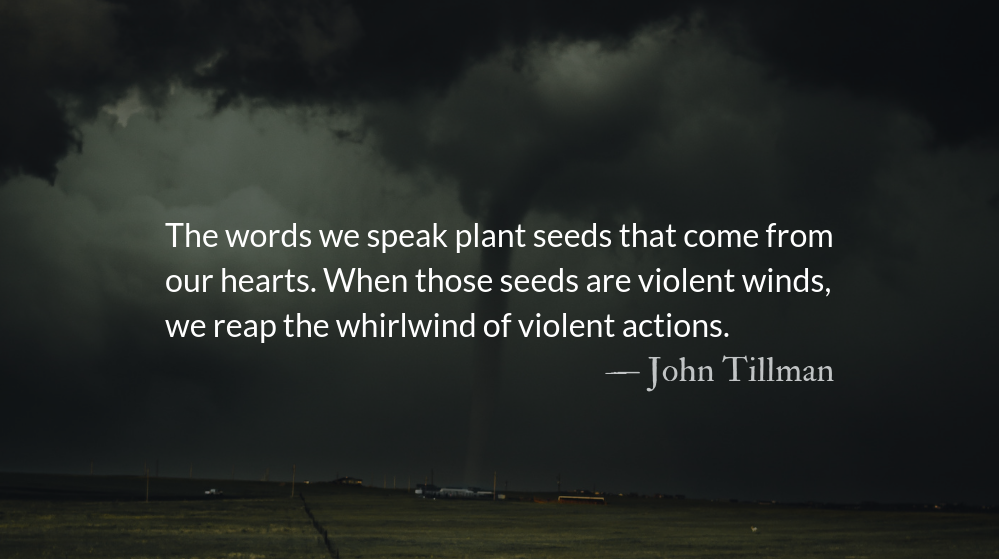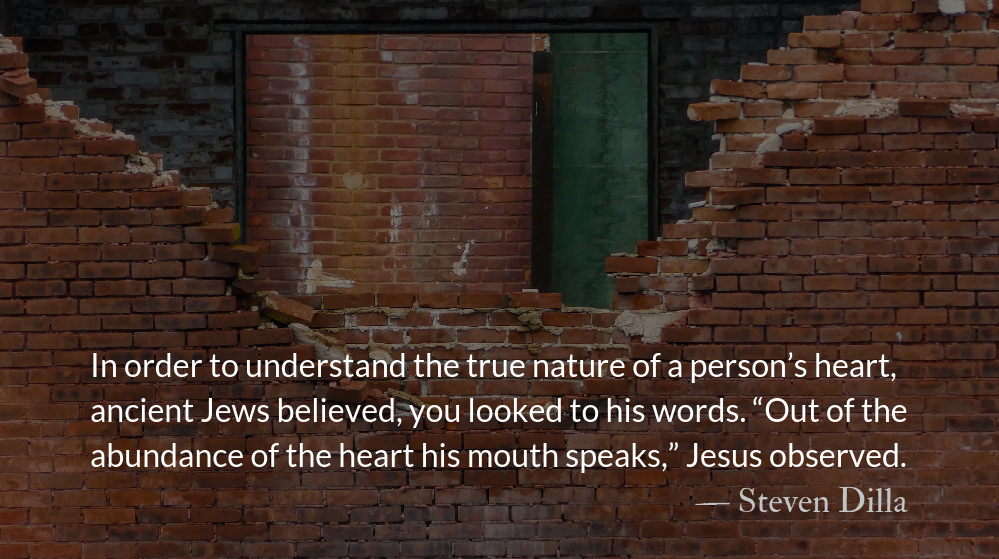Hosea 8.7
They sow the wind
and reap the whirlwind.
Reflection: The Language of a Good Neighbor
By John Tillman
The words we speak plant seeds that come from our hearts. When those seeds are violent winds, we reap the whirlwind of violent actions.
When violent words fly through the air, via Twitter, Gab, email, or other means, bombs may soon follow. Where machine-gun-like blasts of vitriol cut through the airwaves, with the expressed intention of mowing down the opposition, it is only a matter of time before actual bullets fly.
Whenever tragedy strikes in our society, Fred Rogers’ quote from his mother about looking “for the helpers” comes to the forefront of our culture’s mind. In certain cases, however, some have started to reject the comforting use of this quote.
In our culture, no matter how popular or how widely seen as a societal good something is, sooner or later someone will start throwing rocks at it.
These critics are careful, so far, not to throw rocks at Rogers directly. Their target is people sharing the quote. They scoff that advice for children should bring comfort to and be so widely shared by adults.
Rogers show was never just for children. It was simple, but never simplistic. And it’s call to action for all of us is inherent to the comfort it brings.
In her book, The Simple Faith of Mister Rogers, Amy Hollingsworth recognized that Rogers’ show had an unmistakable biblical theme—be the good neighbor. Be the helper. But this moralistic challenge has to be empowered by an inner shift of perspective. Rogers explains:
“Evil would like nothing better than to have us feel awful about who we are…We’d look through those eyes at our neighbor, and see only what’s awful—in fact, look for what’s awful in our neighbor…but Jesus would want us to feel as good as possible about God’s creation within us, and…we would look through those eyes, and see what’s wonderful about our neighbor.”
Mister Rogers had a Christ-like understanding of the power of words and feelings. His simple guidance for children did not have an expiration date on it because it was based on principles of the gospel. Rogers connected being the good neighbor to having a Christlike view of ourselves and looking at, and speaking to, our neighbor with that perspective.
May we abstain from the language of political leaders intending to seek and destroy.
May we embrace the language of Christ intent on seeking and saving that which is lost.
Prayer: The Refrain for the Morning Lessons
Help me, O Lord my God; save me for your mercy’s sake. — Psalm 109.25
– Prayer from The Divine Hours: Prayers for Autumn and Wintertime by Phyllis Tickle.
Prayers from The Divine Hours available online and in print.
Today’s Readings
Hosea 8 (Listen – 1:58)
Psalm 123-125 (Listen – 1:52)
This Weekend’s Readings
Hosea 9 (Listen – 2:52) Psalm 126-128 (Listen – 1:58)
Hosea 10 (Listen – 2:47) Psalm 129-131 (Listen – 2:03)
Additional Reading
Read More about Redeeming Speech
The Talmud compares hateful speech to one of the most destructive diseases of their day: Leprosy. The outside rots because the inside is incurably ill. Yet the promise of Scripture is that—through Christ—all are healed, all are made new, all are redeemed.
Read More about Killing With our Hearts
“I do not kill with my gun…I kill with my heart.” Stephen King’s fictional Gunslingers understand Christ’s teaching about murder in a deeper way than some Christians.
Support our Work
Each month over 22,000 Park Forum email devotionals are read around the world. Support our readers with a monthly or a one time donation.








